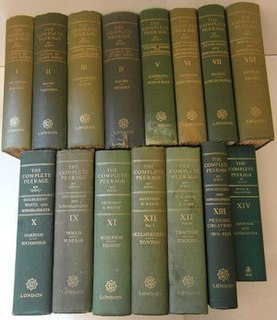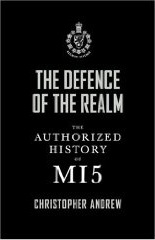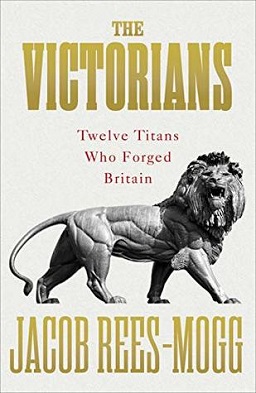 W
W1066 and All That: A Memorable History of England, Comprising All the Parts You Can Remember, Including 103 Good Things, 5 Bad Kings and 2 Genuine Dates is a tongue-in-cheek reworking of the history of England. Written by W. C. Sellar and R. J. Yeatman and illustrated by John Reynolds, it first appeared serially in Punch magazine, and was published in book form by Methuen & Co. Ltd. in 1930.
 W
WThe Age of Capital: 1848–1875 is a book by Eric Hobsbawm, first published in 1975. It is the second in a trilogy of books about "the long 19th century", preceded by The Age of Revolution: Europe 1789–1848 and followed by The Age of Empire: 1875–1914. A fourth book, The Age of Extremes: The Short Twentieth Century, 1914–1991, acts as a sequel to the trilogy.
 W
WBandits is a book by Eric Hobsbawm, first published in 1969. It focuses on the concept of bandits within the mythology, folklore, and literature of Europe, specifically its relation to classical Marxist concepts of class struggle.
 W
WThe Age of Revolution: Europe: 1789–1848 is a book by Eric Hobsbawm, first published in 1962. It is the first in a trilogy of books about "the long 19th century", followed by The Age of Capital: 1848–1875, and The Age of Empire: 1875–1914. A fourth book, The Age of Extremes: The Short Twentieth Century, 1914–1991, acts as a sequel to the trilogy.
 W
WBritons: Forging the Nation 1707–1837 is a history written in 1992 by Linda Colley. Britons charts the emergence of British identity from the Act of Union in 1707 with Scotland and England to the beginning of the Victorian era in 1837. British identity, she argues, was created from four features that both united the Britons and set the nation apart from others:Britain is a Protestant state defined against a largely Catholic Europe; it is an island nation with a strong navy rather than a massive army; it is a metropole; it is a direct rival to France.
 W
WChurchill, Hitler and the Unnecessary War: How Britain Lost Its Empire and the West Lost the World, is a book by Patrick J. Buchanan, published in May 2008. Buchanan argues that both world wars were unnecessary and that the British Empire's decision to fight in them was disastrous for the world. One of Buchanan's express purposes is to undermine what he describes as a "Churchill cult" in America's élite and so he focuses particularly on how Winston Churchill helped Britain get into wars with Germany in 1914 and again in 1939.
 W
WChurchill: Walking with Destiny is a non-fiction book authored by British historian and journalist Andrew Roberts. Viking Press published it within the United States in 2018, while Allen Lane published it within the United Kingdom.
 W
WThe Complete Peerage is a comprehensive and magisterial work on the titled aristocracy of the British Isles.
 W
WThe Defence of the Realm: The Authorized History of MI5, published in the United States as Defend the Realm, is an authorised history of the British Security Service (MI5), written by historian Christopher Andrew. Andrew was commissioned in December 2002 to write the history for MI5's 100th anniversary in 2009, and was given "virtually unrestricted access" to much of MI5's files, as well as "no restriction" on whatever conclusions he decided to draw from them. The book reported, amongst other things, that MI5 kept a file on Prime Minister Harold Wilson, as well as noting how many of Wilson's MP's were spying for the Soviet bloc. The book's title was derived from MI5's Latin motto, Regnum Defende. Historian Keith Jeffery was commissioned to write a similar authorised history on the Secret Intelligence Service (MI6) for release in 2010.
 W
WFighter: The True Story of the Battle of Britain (ISBN 1845951069) is a Second World War military history book by English author Len Deighton. First published in 1977, it was Deighton's first history book although he had made his name as a writer of spy fiction. Deighton was encouraged to write the book by his friend, the British historian AJP Taylor, who wrote its introduction.
 W
WA History of Britain is a three volume work written by Simon Schama to accompany a series of documentaries he presented for the BBC.
 W
WAndrew Marr's History of Modern Britain is a 2007 BBC documentary television series presented by Andrew Marr that covers the period of British history from the end of the Second World War onwards. The series was highly praised, and resulted in a follow up series covering the period 1900 to 1945, Andrew Marr's The Making of Modern Britain. A book released by Marr accompanying the series and bearing the same name also details this period of history.
 W
WThe Isles: A History is a 1999 narrative history book by Norman Davies.
 W
WLondon Chartism, 1838–1848 is a 1982 book-length history of the 19th century Chartism social movement in London, as written by David Goodway and published by Cambridge University Press.
 W
WThe Map that Changed the World is a 2001 book by Simon Winchester about English geologist William Smith and his great achievement, the first geological map of England, Wales and southern Scotland.
 W
WMon Nationalism and Civil War in Burma: The Golden Sheldrake, by Ashley South, is a history of the Mon people, an ethnic group found in Myanmar and Thailand. Published in 2003, it covers their history from the pre-colonial era up to the time of writing, with an emphasis on the development of Mon nationalist movements in the 20th century.
 W
WThe Proud Tower: A Portrait of the World Before the War, 1890-1914 is a 1966 book by Barbara Tuchman, consisting of a collection of essays she had published in various periodicals during the mid-1960s. It followed the publication of the highly successful The Guns of August. Each chapter deals with a different country, theme, and time. Two chapters are about British governments in 1895 and 1910; one chapter is dedicated to the Dreyfus Affair in France; and another is nominally about the Wilhelmine politics of late 19th-century Germany, but is really about German music and culture in that period. Other chapters cover the United States, the Hague Conventions of 1899 and 1907, the anarchist movement of the late 19th and early 20th centuries, and the activities of the Socialist International and trade unions.
 W
WThe Second World War is a history of the period from the end of the First World War to July 1945, written by Winston Churchill. Churchill labelled the "moral of the work" as follows: "In War: Resolution, In Defeat: Defiance, In Victory: Magnanimity, In Peace: Goodwill".
 W
WThe Storm of War is a non-fiction book authored by British historian and journalist Andrew Roberts. It covers numerous historical factors of the Second World War such as Adolf Hitler's rise to power and the organisation of Nazi Germany as well as numerous missteps made by the dictatorial regime. The inherent failures of the Axis powers helped in the massive efforts to force their defeat, which constitutes in Roberts' opinion, despite the massive bloodshed during the war, a moral triumph over authoritarianism by idealistic democracy. Praise has come from several publications; examples include The Daily Beast, The Economist. and The Observer.
 W
WThe Story of the Isle of Man is a 1901 book on the history of the Isle of Man by A.W. Moore. It was written as an introduction to Manx history, specifically for children.
 W
WUnlikely Warriors: The British in the Spanish Civil War and the Struggle Against Fascism is a history book by Richard Baxell about British people who served in the International Brigades during the Spanish Civil War. It was published by Aurum Press in 2012.
 W
WThe Victorians: Twelve Titans who Forged Britain is a 2019 biographical work by the Conservative politician Jacob Rees-Mogg, a backbencher at the time, in which he discusses twelve influential British figures of the Victorian period.